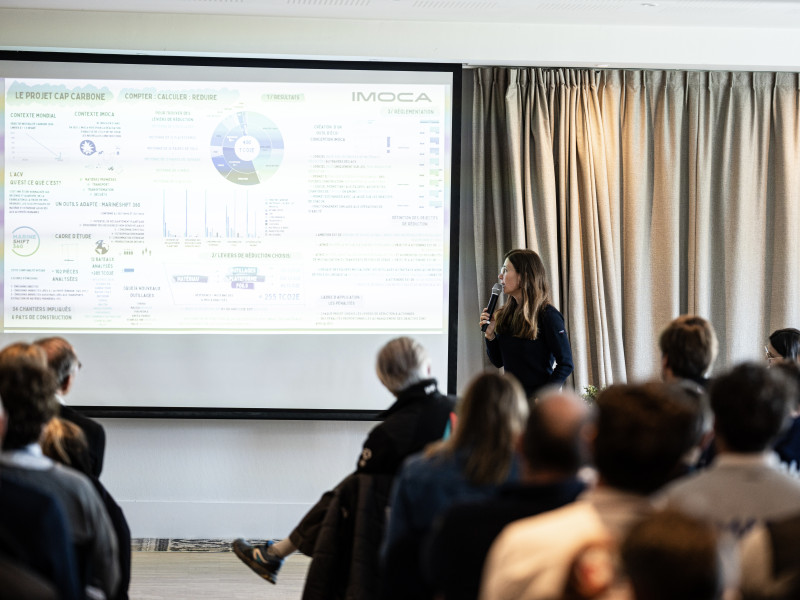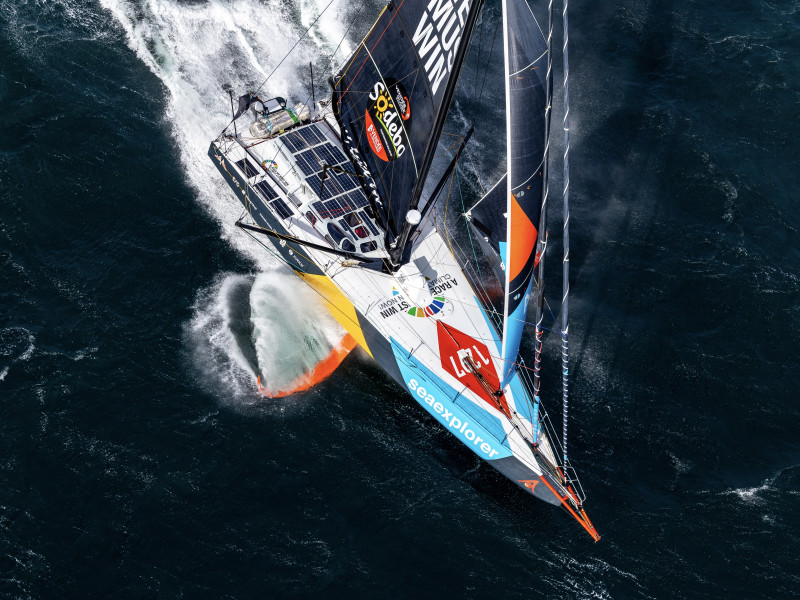

Transforming the industry takes time. It also needs a well adapted governance strategy to implement the change and drive it. The IMOCA Class is well positioned to drive change through the industry by adapting its rules with sustainable measures. The Class has boasted the largest comparative life cycle assessment study in sailing over the last three years, leading to an ambitious 60tCO2e reduction scheme on all new IMOCA. The innovative Eco-Score tool developed by IMOCA and the nautical industry is the key device to coordinate, drive and assure the change.
An IMOCA construction produces over 400tCO2e* when constructed, yet our sector** has no reglementation pushing us to decrease our impact.
We therefore decided to put in place our own voluntary limits, which enabled us to regroup a whole industry around this ambition.
To proceed with this, we started in 2021 conducting a three year long comparative study of life cycle assessments (LCA) on 12 IMOCA constructions (the largest single study ever done on offshore racing yachts). This study included over 50 stakeholders, over 100 parts analysed and in seven countries. From here, the interpretation work began in 2023 to unveil the emission hotspots of the IMOCA yachts.
*IMOCA study framework - hull, deck, mast, boom, foils, keel bulb, keel fin, rudders, moulds
**Our sector is situated between the nautical and the sporting industry. Our IMOCA Class works with over 200 stakeholders to ensure the running of the IMOCA championship including races, boat builds, teams and more.
We identified that an IMOCA build had three major impact hotspots:
By delving further into the studies, it was the materials - essentially carbon fibre - that heightened the CO2e emissions.
2023 was a significant turning point for the studies, as the hotspots were identified and the specific stakeholders were outlined to work on the reduction roadmap. This led to the creation of the first impact reduction Eco-Score tool for IMOCA, offshore racing, sailing and sport as a whole.


The first version of the Impact Reduction Rule was introduced in April 2024. It stipulates that, using the Eco-Score reduction tool, all new IMOCA boat builds from 2025-2028 must meet a minimum impact reduction of 60 tonnes of carbon dioxide (CO2) and the other associated Greenhouse gases.
In the future?
The aim is for the Impact Reduction Rule to stay in place and to be made tougher at the start of each four-year cycle. So, in 2028, the Rule will call for a further impact reduction of 60 tonnes or more of carbon dioxide in the boat construction process based on the 2024 baseline.
"IMOCA continues to drive a progressive sustainability agenda, leading the marine industry by implementing projects that promise to move impact reduction from theory to reality. The transition to a low carbon industry is not linear, and many challenges remain. However, IMOCA’s commitment
to placing data at the centre of all decision making ensures the Class and industry at large can move forward in the right direction."
Ollie Taylor
Project Director at MarineShift360
